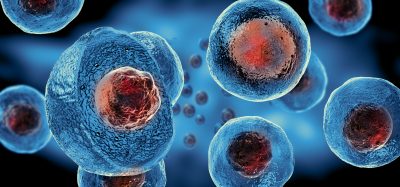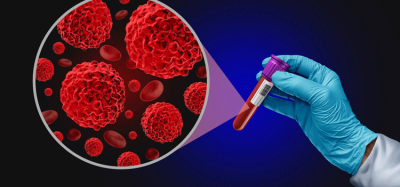Heme-sequestering peptides may help stall lung cancer
Posted: 25 April 2019 | Drug Target Review | No comments yet
Scientists have demonstrated that the growth rate of the majority of lung cancer cells relates directly to the availability of a crucial oxygen-metabolising molecule.


In a preclinical study (published in Cancer Research), biologist Dr Li Zhang and her team at the University of Texas at Dallas. showed that the expansion of lung tumors in mice slowed when access to heme (the oxygen-binding molecule in hemoglobin) was restricted. The researchers also showed that those same cancers grew faster when more heme was available than normal.
With an eye toward exploiting cancer’s heme dependency, two of Dr Zhang’s graduate students in the Department of Biological Sciences then engineered and extensively characterised new molecules aimed at starving the cancer cells of the molecule that allows them to proliferate so quickly.
The findings suggest a potential new path forward in treating non-small cell lung cancer (NSCLC), which comprises about six out of every seven cases of lung cancer.
However, the team emphasised that its potential treatment approach is designed to work in tandem with chemotherapy or other forms of cancer remedy, not by itself.
“This method wouldn’t kill tumors; it would delay their growth,” explained Dr Zhang. “So it would not be a stand-alone treatment, but it could replace less effective forms of therapy that rely on inhibition of angiogenesis – the creation of new blood vessels.”
These new results emphasise that tumors create energy using molecules other than glucose – a type of sugar known to feed tumors. Where more heme is being made, more oxygen is consumed to make more adenosine triphosphate (ATP) – the energy-carrying molecule that fuels many activities in living cells. Take the heme away, and cancer cell growth slows down.
Sagar Sohoni and Poorva Ghosh, co-first authors of the study, collaborated to investigate how a series of engineered molecules deny heme to cancer cells. These heme-sequestering peptides, or HSPs, are able to ‘hijack’ heme from the spaces between cells, where tumors would be able to access it, while leaving alone the heme in healthy cells.
“Heme sequestering doesn’t adversely affect the normal cells,” Dr Zhang continued. “They synthesise the little heme they need on their own. Also, our peptide won’t go into cells so it shouldn’t provoke many side effects.”
Demonstrating the reduced progress of heme-starved cancer cells makes a compelling case on its own. Dr Zhang’s team also modified NSCLC cells to allow them to obtain heme faster and those cells behaved as expected – aggressive and invasive, consuming oxygen quickly and putting out more ATP.
“Cancer cells’ energy demands are very high compared to the normal cells around them,” Dr Zhang said. “When more heme is available, NSCLC cells grow and reproduce at an alarming rate.”
The next step is to continue refining the design of the HSPs to create a version for use in humans.
Related topics
Analysis, Cell Cultures
Related conditions
Lung cancer
Related organisations
University of Texas at Dallas
Related people
Dr Li Zhang, Poorva Ghosh, Sagar Sohoni








